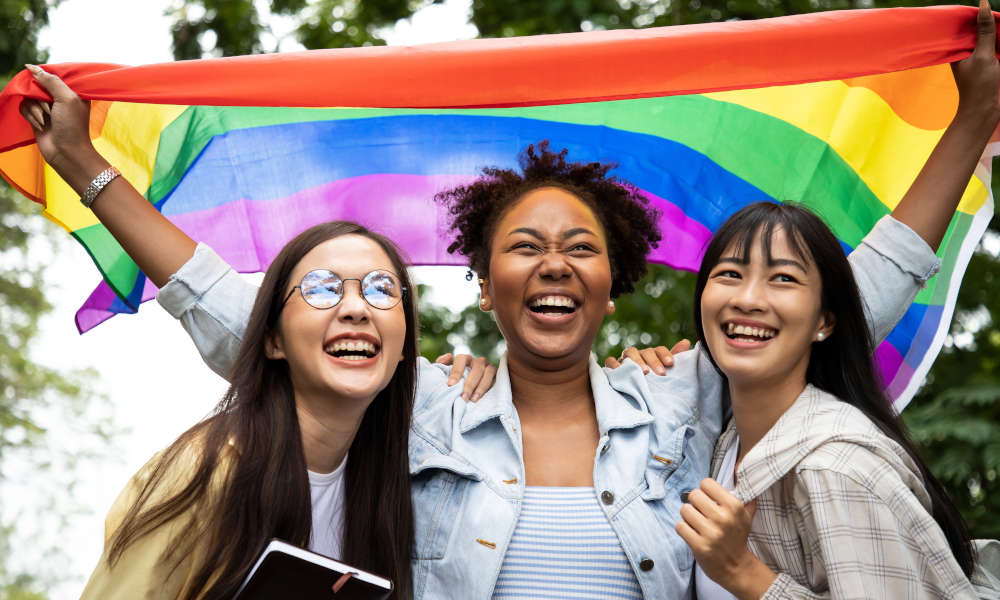GLAAD’s 2024 Accelerating Acceptance Study brings some unexpected and concerning news about LGBTQ acceptance in the U.S. While acceptance remains significant, there are serious threats to progress, including disinformation, harmful rhetoric, and an increase in anti-LGBTQ legislation.
As a leading advocate for LGBTQ rights, GLAAD’s annual study is a critical tool for understanding societal attitudes. The 2024 report is particularly important as it highlights the challenges facing the LGBTQ community in a time of heightened political and social tension.
Importance of LGBTQ Acceptance
LGBTQ acceptance is about more than just fairness; it’s a fundamental human rights issue. Acceptance influences the mental health, safety, and overall well-being of LGBTQ individuals. When society embraces diversity, it helps reduce the stigma and discrimination that many LGBTQ people face.
The GLAAD 2024 report underscores that the journey toward equality and acceptance is far from over, reminding us that progress requires constant vigilance and action.
Key Findings of the Report
Rising Discrimination Against Gen Z Adults

Gender Identity Discrimination
One of the most alarming findings is the rise in discrimination against Gen Z adults based on their gender identity. The report shows a jump from 57% to 70% in just one year, underscoring the ongoing challenges that young LGBTQ individuals face.
Sexual Orientation Discrimination
Discrimination based on sexual orientation has also increased, with 54% of Gen Z adults reporting such experiences, up from 49% in 2023. This trend highlights that society is not advancing in acceptance as quickly as hoped.
Gen Z: The “Queerest Generation”

Statistics on Gen Z’s Sexual Orientation
Gen Z is often dubbed the “queerest generation,” and the data supports this. Nearly half of individuals aged 18-24 do not identify as “fully straight,” signaling a significant cultural shift towards greater visibility of diverse identities.
Societal Implications
This rise in LGBTQ identification among Gen Z presents both opportunities and challenges. While it reflects growing acceptance, it also means this generation is more exposed to discrimination. To support them, society must foster inclusive environments that allow all individuals to live authentically.
Factors Contributing to the Decline in Acceptance
Disinformation and Harmful Rhetoric
Media’s Role
The decline in LGBTQ acceptance is partly driven by disinformation and harmful rhetoric. The media plays a powerful role in shaping public opinion, and negative portrayals can significantly harm societal attitudes.
Political Influence
Political discourse is also crucial in shaping public opinion. The rise in anti-LGBTQ rhetoric from political leaders has contributed to a more hostile environment, making it essential for inclusive voices to counteract these negative narratives.
Surge in Anti-LGBTQ Legislation
Targeting Transgender Rights
The GLAAD report highlights a worrying increase in anti-LGBTQ laws, particularly those targeting transgender rights in healthcare, sports, and education. These legislative attacks can have devastating consequences, limiting the ability of transgender individuals to live openly and safely.
Impact on Daily Life
Anti-LGBTQ laws affect every aspect of life, from healthcare to education. Laws that restrict access to gender-affirming care or exclude transgender individuals from sports can severely limit opportunities and perpetuate discrimination.
The Role of Media Representation
Importance of Positive Media Representation
Positive media representation is essential for fostering acceptance. When LGBTQ individuals are portrayed accurately and positively, it helps challenge harmful stereotypes and promotes a more inclusive society.
Case Studies of Media Influence
Looking at how media representation affects public attitudes can provide valuable insights. TV shows and movies that feature LGBTQ characters can normalize diverse identities and contribute to broader societal acceptance.
The Call to Action
Sarah Kate Ellis’s Message
GLAAD President and CEO Sarah Kate Ellis emphasizes the importance of this report as a call to action. She urges voters and allies to fight for a future that is safe, accepting, and equal for LGBTQ individuals.
The Importance of Advocacy
Combating Apathy
The GLAAD report highlights the need to combat apathy and silence. Allies and advocates must actively speak out against discrimination and work to protect the rights of LGBTQ individuals.
Ensuring a Safe Future
Ensuring a safe and equal future for LGBTQ individuals requires ongoing advocacy, education, and support. By promoting inclusivity and challenging harmful rhetoric, we can help create a more just society.
Conclusion
The GLAAD 2024 Accelerating Acceptance Study is a stark reminder of the challenges facing the LGBTQ community today. The report shows that despite progress, there are significant threats to LGBTQ acceptance, driven by disinformation, harmful rhetoric, and discriminatory legislation. To ensure a safe and equal future, continued advocacy and support are crucial. By fostering inclusivity and challenging harmful narratives, we can help build a more equitable society for all.
More Stories:
- Dylan O’Brien’s Sibling Claims Estrangement Despite Actor’s Public LGBTQ+ Support
- Trisha Paytas Donates Over $10,000 to Trans Charity Amid Rising Concerns for LGBTQ+ Rights
- Musical Based on Accused Killer Luigi Mangione Sells Out Before Premiere in San Francisco
- Queer Love and Emotional Stakes Rise as Ellie and Dina Connect in ‘The Last of Us’
- Lady Gaga Draws Record-Breaking 2.5 Million Fans to Historic Rio Concert







